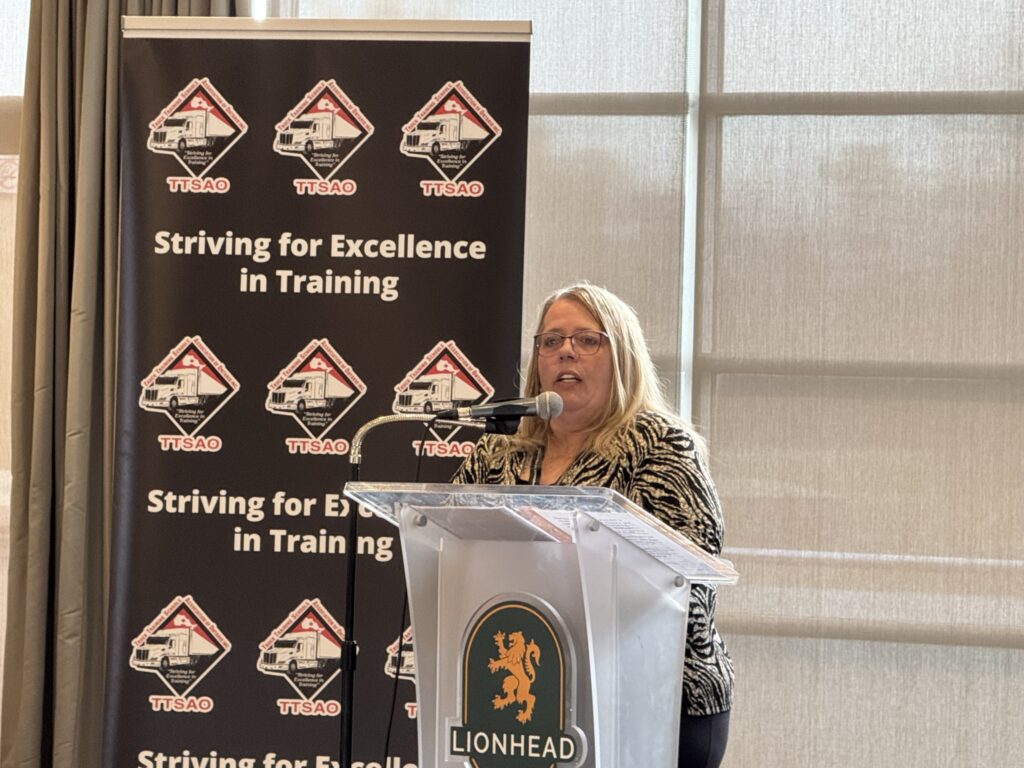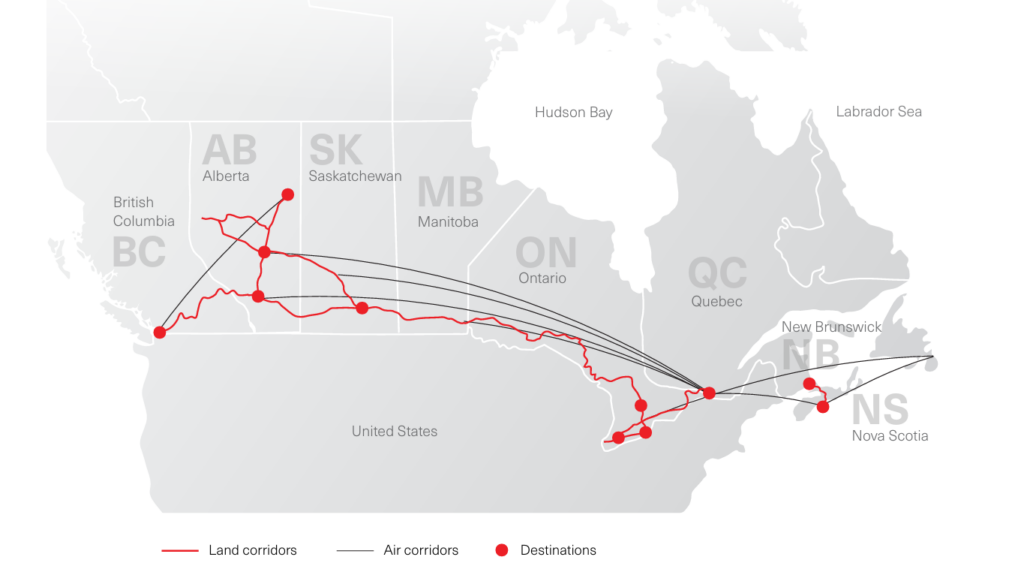Human trafficking generates an average of $250,000 per victim each year, yet only one in eight cases in Canada leads to a guilty verdict, and just about half of Canadians either don’t believe trafficking occurs domestically or don’t view it as a serious problem.
This is according to Shelley Walker, CEO of the Women’s Trucking Federation of Canada and president of the Know Human Trafficking campaign, who spoke at the Truck Training Schools Association of Ontario conference on April 10. She highlighted that while the majority of trafficking victims are women and girls, the rising rates of labor and sex trafficking, especially involving young boys and even babies, are alarming.

The gap between male and female victims is now only about 3%, she said, citing recent U.S. statistics. “And baby trafficking is on the rise,” Walker added. “Women are being kidnapped, being inseminated and their babies taken.”
Walker said 91% of victims know their trafficker, emphasizing the need for education and vigilance. “If you don’t think that it can happen to your daughter, your granddaughter, or your niece or your nephew… they can all be lured in regardless of their background.” She also warned parents to be cautious about inviting people into their homes and introducing them to their children. Traffickers often exploit personal connections, she explained, saying that these individuals can later use social media to target vulnerable children who seem sad, depressed, or lacking self-esteem.
She cited Statistics Canada data, saying that Ontario is ranked the third biggest human trafficking hub, behind Nova Scotia and Saskatchewan.
This is why schools across Canada and industry leaders should promote education on the topic.
Mandatory training on the horizon
As of April 10, more than 50,000 people have completed human trafficking awareness training through the Know Human Trafficking campaign and its industry partners, Walker said. The training is available in both online and classroom formats and includes certificates of completion.
Walker said the Ministry of Transportation has confirmed that human trafficking education will soon become part of Ontario’s Mandatory Entry-Level Training (MELT) curriculum. Prince Edward Island has already mandated it for new drivers, and a short segment on trafficking has been added to Ontario’s new air brake course.

Walker also raised concerns about labor trafficking within the trucking industry, particularly in relation to misclassified drivers and unregulated driving schools.
She added that massage parlors are a common site for trafficking, too, but so too are transportation corridors like the 401 and Trans-Canada Highway.
Small steps help
Walker promoted the use of TraffickCam, a free app that lets travelers upload hotel room photos to help law enforcement identify locations used for trafficking.
She also urged parents to stay engaged, citing free training offered by the Joy Smith Foundation and the importance of regularly updating photos of teenagers, especially in case it might be needed for missing person investigations.
Campaign expands with trailer wraps, Indigenous partnerships
Walker also announced that the Know Human Trafficking campaign is now officially operating as a registered non-profit, with charity status expected soon. As part of its growing visibility efforts, 32 wrapped 53-ft. trailers are now in operation, along with five cement trucks in Nova Scotia and five tanker trailers in Saskatchewan.
One new trailer was created in partnership with an Indigenous community, featuring English on one side and Cree language on the other.